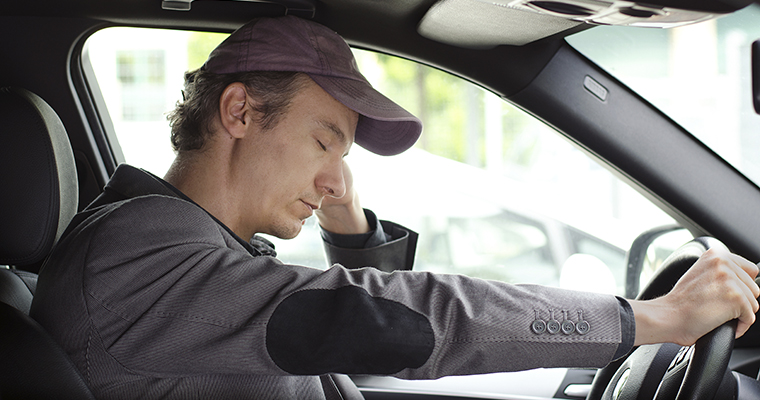How Do I Know if I Have Sleep Apnea?

Is your snoring or excessive fatigue impacting your quality of life?
Sleep apnea is a disease that affects breathing during sleep and can be life-threatening if left untreated.
The two main types of sleep apnea are obstructive sleep apnea (OSA) and central sleep apnea (CSA). OSA is currently the most prevalent.
More than 22 million Americans suffer from mild to moderate sleep apnea, and studies have shown that it’s directly correlated to anxiety and chronic fatigue.
The majority of people who suffer from sleep apnea aren’t aware they are suffering from sleep apnea, and perhaps as much as 90% of the Americans who have it are undiagnosed.
To clear things up, we’ll lay out some sleep apnea facts and provide a symptom identifier quiz to give you a better idea of whether you may need to seek help.
Obstructive sleep apnea (OSA)
OSA is caused by intermittent relaxation of the throat muscles, which blocks the airway while sleeping.
This results in shallow breaths and brief interruptions in breathing while asleep, which impairs sleep quality and oxygen intake.
The most commonly noticed characteristic of OSA is snoring, which is caused by air squeezing through narrow airways.
Central sleep apnea (CSA)
In patients with CSA, breathing repeatedly stops and starts due to improper signaling from the brain.
Although the muscles that control breathing do not over-relax or physically obstruct the air path (as with OSA), they never receive appropriate signals from the brain, and consequently, breathing is disrupted.
What happens if sleep apnea goes untreated?
Sleep apnea’s side effects can disrupt your daily life and have an impact on your overall health and productivity. If left untreated, sleep apnea can lead to:
- Low energy and reduced productivity at work
- Irritability, anxiety, and mood swings
- Diabetes, due to an inability to regulate insulin
- Hypertension and increased risk of heart disease, as the heart exerts itself more to pump oxygen through the body at night
Sleep apnea symptoms
Common signs of sleep apnea include:
- Loud snoring
- Gasping or choking during sleep
- Excessive daytime fatigue
- Morning headaches
- Difficulty staying asleep
If you’re experiencing these symptoms, please get in touch with us to discuss treatment.
Sleep apnea quiz
There is no definitive quiz that can tell you if you have sleep apnea – only a doctor can do that. However, there are ways to recognize whether you may have a sleep condition that your general practitioner should examine.
Answer the following questions honestly, keeping a running tally of your score:
How often do you feel drowsy or nod off while sitting and reading?
1 – Not at all
2 – Rarely
3 – Frequently
How likely are you to nod off while watching TV?
1 – Not at all
2 – Possibly
3 – Very likely
Do you normally feel drowsy while sitting inactive in a public place (e.g., a theater or a meeting)?
1 – Not at all
2 – Rarely
3 – Frequently
Would you nod off as a passenger in a car after an hour?
1 – Not at all
2 – Possibly
3 – Very possible
How likely is it that you’d feel drowsy while sitting and talking to someone?
1 – Not at all
2 – Possibly
3 – Very possible
Do you feel drowsy or nod off after meals (even without having had alcohol)?
1 – Not at all
2 – Rarely
3 – Frequently
How often do you find yourself yawning while stopped at a red light?
1 – Not at all
2 – Rarely
3 – Frequently
If your score is 10 or higher, we recommend speaking to your family physician or Dr. Ardelean to discuss whether you may have a sleep disorder or underlying condition that is impacting your sleep.
Or:
- Call us at 586-788-0881
- Email us at info@amberdentalsmiles.com
Amber Dental is proud to serve the people of Sterling Heights, Maycomb County, MI, and welcomes people from neighboring areas.

